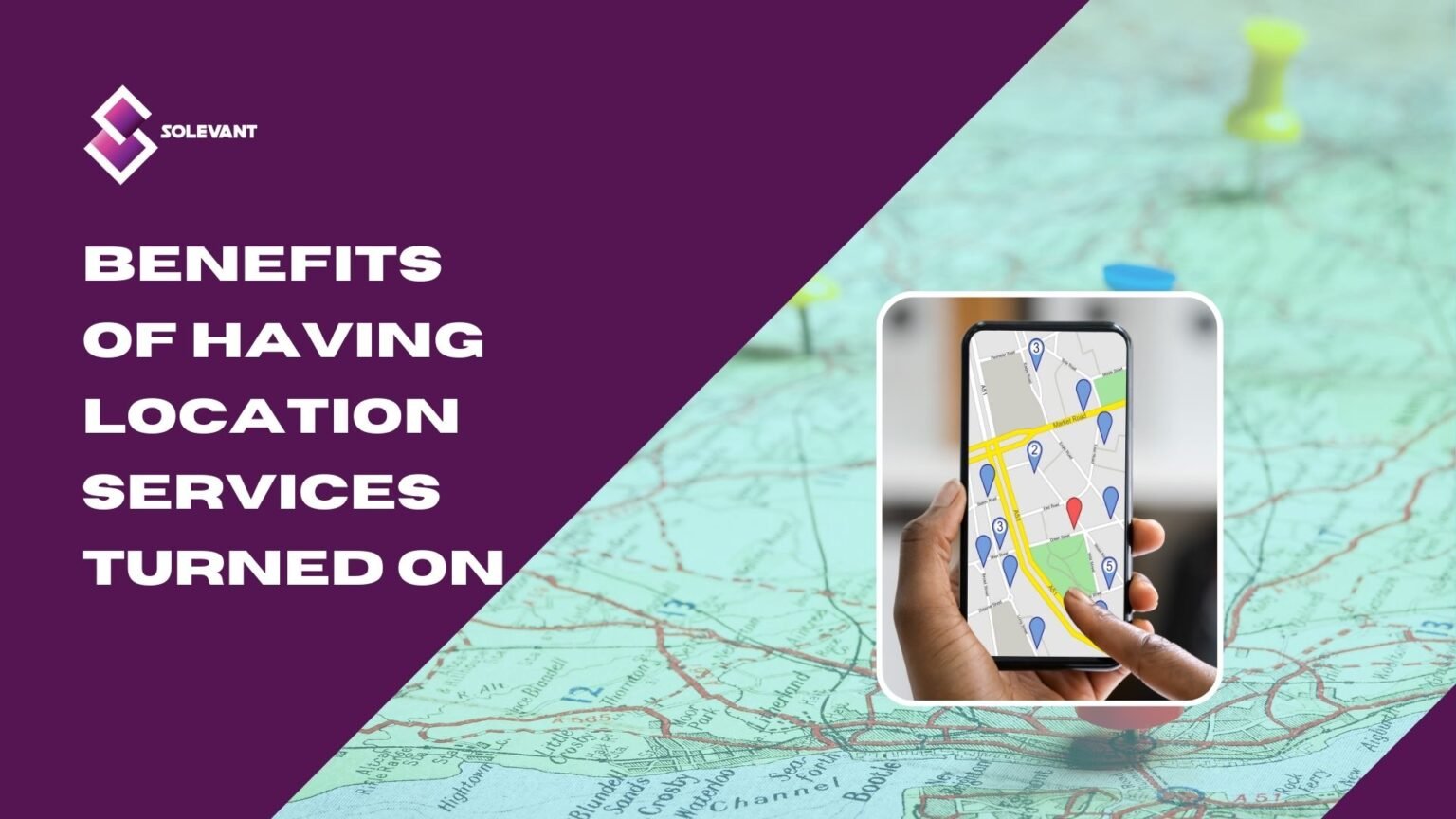In the era of data driven decision making and dynamic markets, the combination of technology and supply chain management has led to the development of a breakthrough idea known as location intelligence.
This innovation redefines supply chain tactics using the power of GIS and spatial data. Supply chain operations optimization is increasingly relying on location intelligence as businesses strive to ensure quicker response, better efficiency, and enhanced agility.
In this article, we’ll explore various uses of location intelligence for supply chain strategies-what are they exactly? What do they involve? How do they transform decision-making and tackle significant issues?
Understanding Location Intelligence
This amalgamation enables organizations to analyze and interpret data within a geographic context, enhancing decision-making precision.
Location intelligence goes beyond mere mapping; it encompasses a comprehensive understanding of the relationships between geography, logistics, and operations.
It empowers supply chain managers with real-time insights that inform critical decisions. This real-time visibility aids in minimizing disruptions, optimizing routes, and ensuring resource allocation based on geographic trends.
Benefits of Location Intelligence in Supply Chain Strategy
Location intelligence is pivotal in optimizing supply chain strategies by providing crucial insights into geographical data and spatial relationships. It’s benefits may include:
Improved Real-time Visibility
Location intelligence brings unparalleled real-time visibility to the supply chain. Through live tracking and geospatial analytics, supply chain managers can monitor the movement of goods at every stage. This visibility extends from suppliers and manufacturers to distributors and end consumers.
Impact on Inventory Management
With real-time visibility, organizations can optimize inventory levels effectively. By tracking stock levels across various locations, supply chain managers can make informed decisions about replenishment, reducing excess inventory costs while ensuring products are available when and where needed.
Enhanced Order Fulfillment
Real-time insights into inventory and distribution allow for faster and more accurate order fulfillment. Location intelligence ensures that orders are routed to the nearest available stock, minimizing lead times and improving customer satisfaction.
Improved Demand Forecasting
Real-time visibility facilitates the collection of granular data, enabling more accurate demand forecasting. By analyzing location-specific trends and demand patterns, supply chain managers can make more informed decisions about production and distribution.
Efficiency through Route Optimization:
Location intelligence revolutionizes route planning by considering many factors, including distance, traffic, and road conditions. Algorithms analyze real-time data to suggest the most efficient routes, reducing transportation time and costs.
Cost Savings and Efficiency Gains
By optimizing routes, businesses can achieve substantial cost savings. Reduced fuel consumption, lower maintenance costs, and minimized idle time lead to increased overall efficiency. For instance, a major logistics company reported a 15% reduction in fuel costs within six months of implementing location-based route optimization.
Enhanced Demand Forecasting Accuracy
Location data provides a spatial context for demand forecasting, allowing businesses to account for regional variations in consumer behavior. For example, weather patterns, cultural events, and local trends can significantly impact product demand. By factoring in these variables, location intelligence improves the accuracy of demand forecasts.
Location-based Inventory Management
Optimizing inventory placement is essential to minimize storage costs and increase fulfillment efficiency. Location intelligence helps determine where to position inventory based on demand hotspots, ensuring products are closer to consumers and reducing the need for long-distance transportation.
Identifying Supply Chain Risks
Location intelligence empowers supply chain managers to identify potential risks before they escalate. By analyzing geographic data, businesses can pinpoint regions prone to natural disasters, political instability, or other disruptive events that might impact the supply chain.
Predictive Analytics for Risk Assessment
Location intelligence, coupled with predictive analytics, enables proactive risk management. Historical data combined with real-time insights can forecast potential disruptions, allowing businesses to implement mitigation strategies such as rerouting shipments or adjusting inventory levels.
The Challenges of Supply Chain Management
Supply chain management faces multifaceted challenges amid global dynamics, technological shifts, variable consumer demands, and unforeseen disruptions. Navigating inventory, logistics, and risk demands constant adaptability and strategic finesse.
Navigating Complexity
Supply chain management is a complex dance involving multiple stakeholders, processes, and variables.
From raw material sourcing to final product delivery, each step presents its challenges.
The intricate interplay of these elements demands a strategic approach that can only be effective with robust insights.
Demand Variability
Fluctuations in consumer demand are a constant challenge. Forecasting accurate demand and aligning production and distribution processes can make the difference between surplus stock and stockouts.
Location intelligence offers a spatial dimension to demand patterns, aiding in predicting consumer behavior more accurately.
Transportation Issues
Efficient transportation is the backbone of a well-functioning supply chain. Yet, navigating traffic congestion, varying road conditions, and unexpected detours can disrupt schedules and escalate costs. Location intelligence optimizes route planning by factoring in real-time traffic data, distance, and weather conditions.
Inventory Management
Maintaining optimal inventory levels requires a delicate balance. Overstocking ties up resources and increases holding costs, while understocking leads to missed sales opportunities. Location intelligence provides insights into the geographic distribution of demand, enabling organizations to position inventory strategically.
Types of Location Data in Supply Chain Management
Location data plays a pivotal role in modern supply chain management, providing invaluable insights into the movement and whereabouts of goods throughout the logistics network.
- Geospatial Data: This includes maps, satellite imagery, and terrain information. Geospatial data helps visualize the physical layout of the supply chain network, identifying optimal locations for warehouses, distribution centers, and retail outlets.
- Real-time Tracking: Leveraging technologies such as GPS and RFID, real-time tracking offers visibility into the movement of goods. This data helps streamline operations, manage inventory, and improve overall responsiveness.
- Historical Data: Past location-based trends and patterns are critical in strategic decision-making. Historical data aids in demand analysis, route optimization, and risk assessment by identifying recurrent challenges.
Implementing Location Intelligence in Your Supply Chain
By harnessing geographical data, companies gain valuable insights that drive efficiency, reduce costs, and enhance decision-making processes.
Practical Steps for Integration
Integrating location intelligence into your supply chain involves strategically implementing and utilizing geospatial information. These steps seamlessly incorporate location-based data to streamline operations, improve logistics, and enhance overall supply chain management.
- Identify Objectives: Determine your specific supply chain challenges that location intelligence can address. Clear objectives are crucial, whether it’s optimizing routes, improving inventory management, or mitigating risks.
- Data Collection: Collect relevant location data through various sources, such as GPS-enabled devices, IoT sensors, and external data providers. Ensure data quality and accuracy to make informed decisions.
- GIS Software Selection: Choose a suitable Geographic Information System (GIS) software that aligns with your business needs. Consider factors such as ease of use, scalability, and integration capabilities.
- Integration with Existing Systems: Integrate location intelligence seamlessly into your existing supply chain systems and software. APIs and data connectors can facilitate this integration process.
- Data Analysis: Leverage GIS tools to analyze the collected location data. Visualize trends, patterns, and correlations that can guide decision-making.
Overcoming Implementation Challenges
Navigating the complexities of implementation can pose significant challenges. Whether in business, technology, or various projects, overcoming these hurdles is essential for success.
- Data Quality: Inaccurate or outdated location data can lead to misguided decisions. Implement data validation processes and invest in data cleansing to maintain data accuracy.
- Change Management: Employees may need to adapt to new tools and methodologies. Provide training and support to ensure a smooth transition and maximize adoption.
- Integration Complexity: Integrating location intelligence with existing systems can be complex. Collaborate with IT experts or consultants to navigate integration challenges effectively.
- Privacy and Security: Protect sensitive location data from unauthorized access. Implement robust security measures and comply with data protection regulations.
- Resource Allocation: Implementing location intelligence requires time, effort, and financial resources. Develop a comprehensive implementation plan with a clear budget and timeline.
Conclusion
In the modern era of supply chain management, where complexity and competition reign, location intelligence emerges as a game-changer.
Businesses gain an unprecedented advantage by harnessing the power of geospatial data, real-time tracking, and historical insights.
The benefits span from improved visibility and optimal route planning to enhanced demand forecasting and risk mitigation. Organizations that strategically integrate location intelligence into their supply chain strategies are poised to thrive in an ever-evolving market landscape.
Author
-
I help businesses increase revenue with data-driven content marketing strategies that engages their audience. Looks like what you want? Let's talk.







